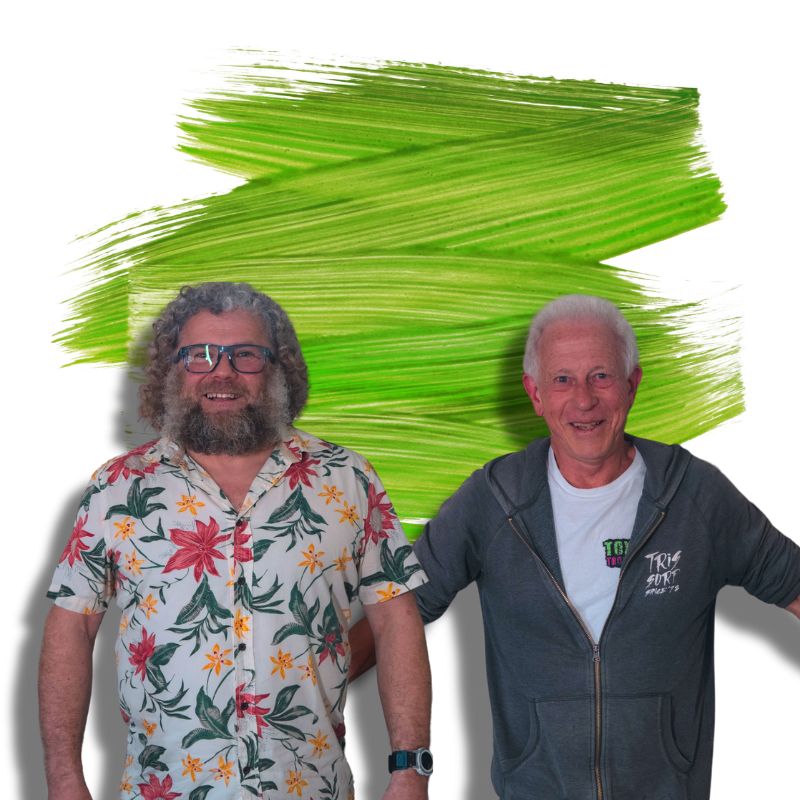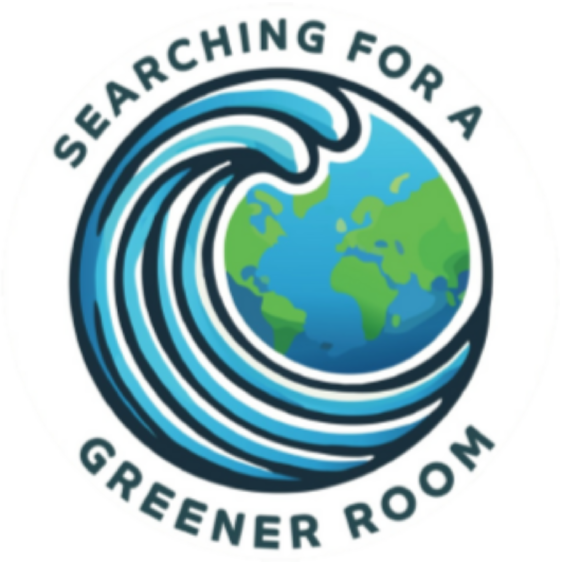18 June 2025
01:07:44
Chris Hines
OVERVIEW:
Chris Hines, a long-time environmental activist and co-founder of Surfers Against Sewage (SAS), discussed his journey from surfing in Cornwall to leading campaigns against sewage pollution. He highlighted SAS's early successes, including a 1991 lobby at the Houses of Parliament that led to a £2 million research fund. Chris also shared his work at the Eden Project, where he implemented sustainable practices like the Triple Bottom Line. He emphasised the importance of community, resilience, and informed consumerism, advocating for ethical consumerism and repairing and reusing items. Hines also mentioned the impact of misinformation and the need for better environmental legislation. Actions Research and subscribe to the Ethical Consumer magazine to make more informed purchasing decisions. Slow down, travel less, and stay longer in destinations to reduce carbon emissions. Repair, reuse, and respect the possessions and resources you have. Engage in more conversations with people and build connections within your community. Outline Chris Environmental Journey and Early Surfing Experiences Curly Steve introduces Chris Hines, highlighting his extensive environmental activism and surfing background. Chris shares his early life in Plymouth, growing up near Dartmoor, and his love for the natural environment. Chris recounts his first experiences with surfing, starting with a wooden belly board and later owning a second-hand surfboard. He describes his favourite surfing spots in Cornwall, including Whitmouth, Polzeth, and Trigg Point. Formation of Surfers Against Sewage (SAS) Chris explains his transition from surfing to environmental activism, leading to the formation of SAS in 1990. He details the initial meeting in Porthtowan and St. Agnes, where the idea of SAS was born due to increasing pollution in the water. Chris describes the first public meeting in St. Agnes, which attracted over 200 people despite initial scepticism. Chris recounts the first public protest in the Houses of Parliament, which led to a £2 million research fund into the health effects of sewage-contaminated sea water. He discusses the impact of SAS's activism, including the introduction of the term "intelligent activism" to describe their strategic approach. Chris describes various tactics used by SAS, such as media campaigns, shareholder activism, and legal challenges to force water companies to improve their practices. He shares a memorable incident involving a 10-foot inflatable turd, which was used as a protest tool to draw attention to the issue. Chris explains the historical lack of sewage treatment works in the UK and the impact of Margaret Thatcher's statement that all sewage was treated before discharge. He describes the discovery of Jersey's effective sewage treatment system using ultraviolet light disinfection, which inspired SAS to advocate for similar solutions. Chris details the successful implementation of UV treatment in Durham and Welsh Water, which significantly improved water quality. He highlights the ongoing challenges faced by SAS, including the need for continued activism due to regressive legislation and funding cuts. Transitioned to the Eden Project and introduced Triple Bottom Line Thinking as Sustainability Director, where he implemented waste management and sustainability initiatives. He introduces the concept of the Triple Bottom Line, which balances economic, social, and environmental considerations in business practices. Chris shares an example of applying the Triple Bottom Line to the installation of a dishwasher at the Eden Project, which reduced landfill, created jobs, and improved the dining experience. He describes the impact of the Triple Bottom Line approach on various aspects of the Eden Project, including security and procurement. Establishment of A Grain of Sand Chris explains the establishment of A Grain of Sand, an organisation focused on helping individuals and organisations make a positive impact. He discusses the importance of community-based solutions and the role of small, agile organisations in driving change. Chris highlights various projects and initiatives supported by A Grain of Sand, including vinyl flooring recycling and sustainable surfboard manufacturing. He emphasises the need for collective action and the power of small, individual contributions to create a better future. Challenges and Future Directions Chris discusses the current state of environmental activism, including the need for stronger legislation and increased public awareness. He highlights the role of technology in both solving and exacerbating environmental issues, emphasising the importance of responsible use. Chris shares his thoughts on the future of environmental activism, including the potential for community-based solutions and the importance of resilience He concludes with a call to action, encouraging listeners to engage in conversations, support environmental initiatives, and work towards a more sustainable futureTOPICS
UncategorisedAVAILABLE ON:

WATCH ON YOUTUBE
The Chat
The Guest: Chris Hines
Campaigner, Environmentalist, Co-founder of Surfers Against Sewage
Former Sustainability Director at the Eden Project
Founder of A Grain of Sand
MBE (Moaning Bloody Environmentalist)
The Chat
Roots in Nature and Surf
Chris grew up on the edge of Dartmoor, with a childhood shaped by wild spaces and sea air. His early love of nature and surfing laid the foundation for a life spent challenging pollution and pushing for better.
The Birth of Surfers Against Sewage
Fed up with swimming through raw sewage and sanitary waste, Chris and a dozen others started Surfers Against Sewage in 1990. They went from graffiti plans to packed town hall meetings and ten-foot inflatable turds, all the way to Parliament within a year. The goal was simple: clean seas.
Activism That Works
Chris shares how SAS combined science, legal action, shareholder activism, and media pressure. From mouth swabs to share buys, they left no angle untouched. They forced systemic change, pushed UV disinfection to the top of the agenda, and challenged government claims head-on.
From Protest to Policy
Judicial reviews, select committees, and national media—Chris lays out how SAS moved beyond protest into powerful systems change. At one point, their work even caused share price shifts in major water companies.
From SAS to Eden Project
After a decade of campaigning, Chris joined the Eden Project, taking waste from an afterthought to a sustainability blueprint. He introduced triple bottom line thinking and brought dishwashers, proper crockery, and less landfill to the table.
A Grain of Sand
His current work helps organisations build meaningful change, however small. Whether it’s speaking at vinyl flooring awards or pushing for non-toxic wetsuits, Chris sees every action as a contribution to a wider, collective shift.
Community, Truth, and Resilience
Chris reflects on misinformation, the importance of local conversations, and the power of knowing your own values. He advocates for a slower, more thoughtful life—and plants trees he’ll never sit under.
Chris’s Top Achievable Tips
-
Know your carbon footprint
-
Subscribe to Ethical Consumer
-
Travel less, stay longer
-
Slow down
-
Repair and reuse
-
Love people, connection drives action
Chris’s Evidence
-
The Green Consumer Guide by John Elkington
-
Tickling Sharks (John Elkington’s life story)
-
House of Commons Select Committee Report on Sewage (1997–1998)
-
Triple bottom line thinking
-
The Big Sea film and wetsuit campaign
-
Ongoing work of Surfers Against Sewage
What One Thing Can We Do Today to Make a Better Tomorrow?
Talk to each other. Be human again. Engage with strangers. Communicate kindly. Connection leads to action.
Contact Details
Website: www.agos.co
Email: [email protected]


